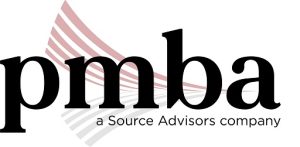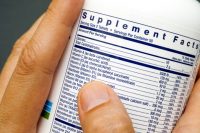Another thing to pay close attention to is the ingredient list. In certain states, any food product containing ingredients such as carob, vanilla, and yogurt flavorings, could be considered candy. For example, New Jersey law TB-70 states that “candy means the preparation of sugar, honey, or other natural or artificial sweeteners in combination with chocolate, fruits, nuts, or other ingredients in the form of bars, drops, or pieces.” This would make certain protein bars containing these ingredients taxable under the notion that they are considered candy. On the other hand, in Florida, if a nutrition bar is candy-coated, it is exempt from tax as it is still considered a dietary supplement.
Is Health Foods and Supplements Taxable in My State?
Each state has a different ruling on determining the taxability of health foods and supplements. Here are some of the major states and their rulings below.
New York
| Protein Bars | Protein Drinks | Supplements |
| Exempt | Exempt | Exempt |
In general, food and food products sold by food stores are not taxable. Dietary foods include any food labeled for special dietary use by people and are intended to substitute for or supplement an ordinary diet or substitute for natural foods.
The label of dietary food must have a statement describing the product’s nutritional and dietary properties. If a product qualifies as a dietary food or health supplement, it’s exempt from sales tax regardless of the form in which it’s sold (i.e., sold as a solid, liquid, pill, or powder).
Carbonated beverages, sports drinks, and energy drinks don’t qualify as dietary foods or health supplements. However, products that supplement and replenish the body after intense exercise may qualify as nontaxable dietary foods if they’re labeled and sold as a nutritional shake, protein drink, or similar product1.
New Jersey
| Protein Bars | Protein Drinks | Supplements |
| Taxable | Exempt | Exempt |
For New Jersey, dietary supplements are any products required by the federal government to be labeled as a dietary supplement, and that are identifiable by the “Supplement Facts” box on the label, are tax exempt.
Many items that are commonly marketed as health supplements, energy bars, or meal replacement bars do not fall within the definition of “dietary supplements.” Beverages that contain milk or milk products; soy, rice, or similar milk substitutes; or more than 50% fruit or vegetable juice are not considered “soft drinks” and are not subject to Sales Tax2.
Connecticut
| Protein Bars | Protein Drinks | Supplements |
| Exempt | Exempt | Exempt |
In Connecticut, products specifically designed and marketed as nutritional supplements or dietary enhancements are exempt3. Dietary supplements generally include specific vitamins, minerals, protein, carbohydrates, fiber or other nutritional substances. They are usually sold as food items (such as nutritional food bars, drinks or drink mixes), diet and weight loss products, “fat burning” products, weight gain products, health food products, bodybuilding or strength enhancing products, or as drugs and medicines.
Pennsylvania
| Protein Bars | Protein Drinks | Supplements |
| Exempt | Exempt | Exempt |
Food supplements in any form and dietary supplements or substitutes in any form are not taxed in Pennsylvania4.
Dietary supplements are substances you might use to add nutrients to your diet or to lower your risk of health problems, like osteoporosis or arthritis. Dietary supplements come in the form of pills, capsules, powders, gel tabs, extracts, or liquids. They might contain vitamins, minerals, fiber, amino acids, herbs or other plants, or enzymes. Sometimes, the ingredients in dietary supplements are added to foods, including drinks. Any food items which meet these criteria are exempt from sales tax.
Florida
| Protein Bars | Protein Drinks | Supplements |
| Exempt | Exempt | Exempt |
Florida states that dietary supplements (including herbal supplements) and meal replacements, including liquid food supplements and nutrition bars, including those that are candy-coated or chocolate-coated are not taxable. In addition to these items, meal replacement powders, as well as drinks, including liquid food supplements, are all exempt from sales tax5.
Being aware of how each state classifies and imposes taxes on supplements is crucial. Vendors of these items should take the time to determine exactly what category their products fall under in each state to ensure they are taxing them correctly. For assistance please contact PM Business Advisors at info@pmbusinessadvisors.com
Sources:
- “Dietary Foods and Health Supplements”, New York State Department of Taxation and Finance, April 13, 2011, https://www.tax.ny.gov/pdf/tg_bulletins/sales/b11_160s.pdf
- “Sale of Food and Food Ingredients, Candy, Dietary Supplements, and Soft Drinks Sold by a Grocery Store”, New Jersey Division of Taxation, May 13, 2013, https://www.state.nj.us/treasury/taxation/pdf/pubs/tb/tb70.pdf
- “Sales and Use Tax Exemptions for Nonprescription Drugs and Medicines”, Connecticut State Department of Revenue Services, https://portal.ct.gov/DRS/Publications/Special-Notices/1999/SN-99-12
- “Taxable and Exempt Property”, The Pennsylvania Bulletin, December 26, 2009, https://www.pabulletin.com/secure/data/vol39/39-52/2386.html
- “12A-1.011 Sales of Food Products for Human Consumption by Grocery Stores, Convenience Stores, and Supermarkets; Sales of Bakery Products by Bakeries, Pastry Shops, or Like Establishments; Drinking Water; Ice.”, Florida Administrative Code & Florida Administrative Register, June 6, 2011, https://www.flrules.org/gateway/ruleNo.asp?id=12A-1.011
Related Resources
-
GuidesLearn More

-
VideosLearn More

-
VideosLearn More




